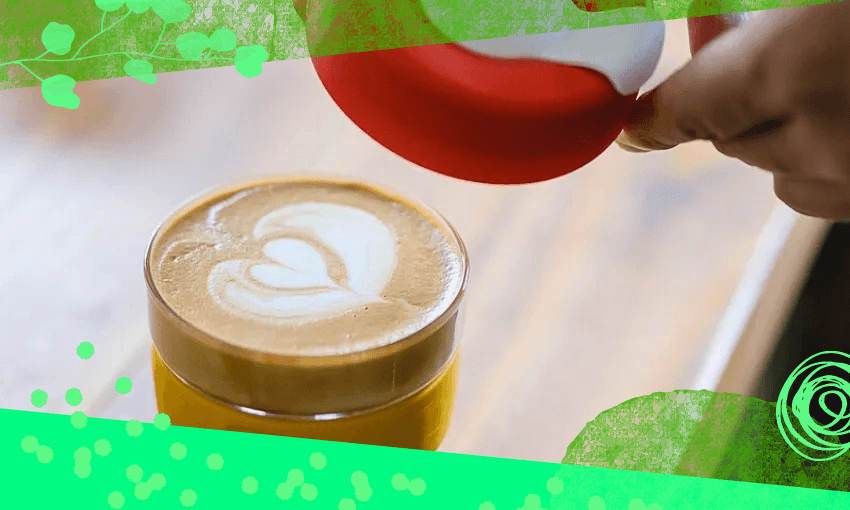If Stanley tumblers can become the United States’ must-have water bottle surely NZ can do the same for the trusty reusable coffee cup, writes Ellen Rykers.
This is an excerpt from our weekly environmental newsletter Future Proof, brought to you by AMP. Sign up here.
A reusable drink tumbler has exploded in popularity, becoming the must-have item for (mostly) young women. You’d think that would be a good thing – more people shifting away from single-use items. But when one functional cup turns into a vast collection of cups reminiscent of the 1990s beanie baby craze, things start to feel less like sustainability in action, and more like icky overconsumption.
The colourful Stanley tumblers aren’t the first reusable water bottle to become a must-have item – but this got me wondering, why haven’t reusable coffee cups seen anywhere near this level of popularity?
Back in 2018–2019, reusable coffee cups seemed to be on the up and up. Coffee Supreme tracked a slow but steady rise in their cafés, as reported by The Spinoff in February 2020.
But then the pandemic hit. During level 4 lockdown, an estimated 20 million disposable cups were saved from landfill as we stayed at home. When takeaways were back on the menu, however, many cafés temporarily ceased accepting reusable cups for fear of spreading Covid-19. Disposable was the only option if you were craving a flat white.
Almost four years on, it feels like the reusable cup trend never really picked back up again – convenience won, and we stuck to our disposable habit. New Zealanders consume as many as 295 million coffee cups every year. And even though they’re mostly made of paper, a pesky plastic lining means they can’t be recycled here in Aotearoa, so they end up chucked in landfill.
Some cafés offer a discount for people toting reusable vessels, but psychology tells us these “gains” aren’t as effective as the “loss” of having to pay extra for disposable, aka a “latte levy”.
But there’s another incentive that works too. Research from Australia found that mimicking those around us is a surefire way to encourage more people to ditch the disposable cups, and switch to reusable.
“You brought your own cup!” the woman standing next to me at the coffee counter exclaimed in surprise. I was retrieving my takeaway coffee the other day, in a glass cup I’ve had since 2019. I was equally surprised. “Yes,” I said, and smiled. Surely most people knew about reusable coffee cups in 2024?
This simple exchange was a reminder that not everyone lives in our eco-friendly bubble. It was also a reminder that individual action is never just about the individual. It’s about the people around us, too.


